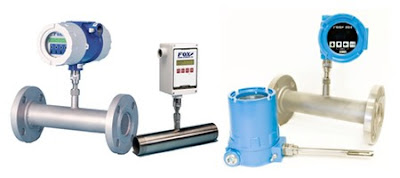
Millions of dollars are wasted every day in combustion processes in the power and co-generation industries: in kilns, smelters, ovens and similar applications. Combustion losses are insidious because the processes operate normally while hiding operation inefficiencies. In the average process, operators and management can’t easily identify the large amounts of fuel being wasted. An efficiency audit will reveal problems that raise operation costs.
Most combustion systems have mechanical controls set to overfeed combustion air by as much as 20%. Fuel costs and additional maintenance costs associated with blower or burner wear can add up to thousands of dollars wasted per day. However, there is a low cost remedy that can be implemented during a short downtime — upgrading combustion air flow meters or installing an instrumented control system.
Benefits of Combustion Airflow Monitoring
- Fuel cost savings
- Improve process stability
- Reduce operator interventions
- Increase equipment capacity
- Improve safety
- Reduce carbon footprint
- Improve sustainability
THE CHALLENGES
How can large combustion processes be modified so they operate more efficiently over a wide
operating range with dirty gases that tend to plug and coat?
- Dealing With Limited Straight Runs
Combustion processes generally consume a high volume of combustion air that travels to the burners through large ducts. To measure air velocity accurately, airflow meters require straight runs upstream and downstream to ensure the meter is reading a fully developed flow profile. Insufficient straight runs can adversely affect flow meter accuracy, process stability and combustion efficiency. Installation of sufficient straight run for flow measurement is typically not considered in the design of a system and multiple solutions are needed to accurately measure airflow.
- Tighter Control in High Turndown Situations
Combustion system turndown and operational flexibility is often constrained by limitations of the control system. The performance of mechanical control systems is poor because mechanical linkages poorly control fuel-to-air ratios when operated over a wide range of firing rates. That’s why they are set to overfeed combustion air. Instrumented control systems perform better at controlling fuel/air mixture if the flow meter is designed and installed correctly.
- Reducing Plugging and Coating
Combustion air flow meters can become coated and plugged when particulates are present. This reduces flow meter accuracy and can potentially shut down the process.
- Improving Efficiency and Environmental Compliance
Combustion processes require sufficient airflow for the efficient combustion of fuel.They also must comply with environmental regulations. Introducing excessive air reduces the efficiency of the combustion process, wastes fuel, and can dramatically increase operating costs. Mechanical combustion control systems do not provide a means to tune airflow for the ideal ratio. An instrumented system provides such a means but the ability to provide fuel savings is often limited by the performance of its air flow meter.
 |
| Air Monitor Corporation Products |
Solutions to combustion airflow challenges are readily available with innovative products manufactured by Santa Rosa, CA.
Air Monitor Corporation. To learn more, or to discuss your aiRflow monitoring challenge, contact Power Specialties, Inc. Call them at (816) 353-6550 or visit their web site at
https://powerspecialties.com.
based
 Within a plant, field instrumentation and actuators are the sensors of the process and the point at which the process automation system detects, measures, and responds to process conditions, including pressure, temperature, flow, and level. Process manufacturing plants of any size and complexity typically need thousands of field instruments, valves, actuators, and other devices. While critical to plant operations, field instrumentation is often purchased ad-hoc and based on the lowest initial cost. This paper describes the importance of considering the total cost of ownership across their lifecycle, from initial purchase through their useful life.
Within a plant, field instrumentation and actuators are the sensors of the process and the point at which the process automation system detects, measures, and responds to process conditions, including pressure, temperature, flow, and level. Process manufacturing plants of any size and complexity typically need thousands of field instruments, valves, actuators, and other devices. While critical to plant operations, field instrumentation is often purchased ad-hoc and based on the lowest initial cost. This paper describes the importance of considering the total cost of ownership across their lifecycle, from initial purchase through their useful life.




